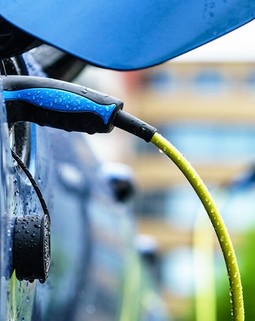Tanzania is swiftly becoming a key player in East Africa’s transition to electric vehicles (EVs). Despite the challenges, such as high import taxes and a need for improved infrastructure, the nation is making significant strides in the adoption of EVs. This article explores Tanzania’s efforts to lead the EV revolution, the economic benefits, and the challenges faced along the way.
Tanzania’s Growing EV Market
As of 2024, Tanzania is home to over 5,000 electric vehicles, a significant number compared to neighboring countries. The government has recognized the potential of electric mobility in reducing carbon emissions, cutting down on fuel imports, and promoting economic growth. This shift is particularly crucial as Tanzania seeks to align with global climate goals and reduce its dependency on fossil fuels.
The Tanzanian government has been working on policies to make EVs more accessible to the public. This includes reducing import taxes on electric vehicles and providing incentives for local businesses to invest in EV technology. While these efforts are still in the early stages, they indicate a growing commitment to fostering a sustainable automotive industry.
Infrastructure Development and Challenges
One of the primary challenges Tanzania faces in the adoption of electric vehicles is the lack of adequate infrastructure. The country’s electricity grid, while improving, is not yet fully reliable. However, recent developments such as the Nyerere Hydropower Plant, which is expected to generate up to 2,115 MW upon completion, are set to bolster the grid's capacity. This will be crucial in supporting the growing demand for EV charging stations across the country.
In addition to the power supply issues, Tanzania also faces the challenge of developing network of EV charging stations. This infrastructure is essential to encourage more people to switch to electric vehicles. The government is exploring partnerships with private companies to invest in the necessary infrastructure, which will also include the integration of renewable energy sources like solar power.
Economic Benefits of EV Adoption
The widespread adoption of electric vehicles in Tanzania offers several economic benefits. First, reducing the country’s reliance on fuel imports could free up significant resources that could be redirected to other critical areas of economic development. Additionally, the growth of the EV sector has the potential to create new jobs across various parts of the economy, including manufacturing, maintenance, and the development of charging infrastructure.
Moreover, electric vehicles contribute to reducing greenhouse gas emissions, which aligns with international climate goals and could attract further international investment in Tanzania’s green economy. The economic ripple effects of a robust EV industry could be profound, potentially positioning Tanzania as a leader in sustainable transportation in East Africa.
Financial Realities and Consumer Challenges
Despite the promising outlook, the financial realities of owning an electric vehicle in Tanzania remain a significant barrier for many consumers. Historically, the upfront cost of EVs has been higher than that of traditional internal combustion engine (ICE) vehicles. However, as manufacturing becomes more efficient and battery costs decrease, this gap is gradually narrowing.
Chinese manufacturers like BYD and Geely are beginning to offer competitively priced electric vehicles in African markets, with some models available for under $10,000. Despite these developments, price sensitivity among Tanzanian consumers remains high, meaning that the initial cost of EVs must be close to that of ICE vehicles to encourage widespread adoption.
To address these financial challenges, the Tanzanian government is considering various incentives, including subsidies, tax exemptions, and reduced import duties for EVs and related components. These measures are essential to make EV ownership more financially viable for the average Tanzanian consumer.
The Road Ahead for Tanzania’s EV Industry
While there are still challenges to overcome, Tanzania’s commitment to electric vehicle adoption is evident. The country’s strategic investments in infrastructure, coupled with efforts to make EVs more affordable, are setting the stage for a greener, more sustainable future. By addressing policy barriers, enhancing consumer awareness, and fostering partnerships between the public and private sectors, Tanzania is well-positioned to lead the EV revolution in East Africa.
As the market continues to evolve and more affordable electric vehicles become available, the dream of widespread EV adoption in Tanzania could soon become a reality. With the right mix of policy support, infrastructure development, and economic incentives, Tanzania could emerge as a model for sustainable transportation in the region.





